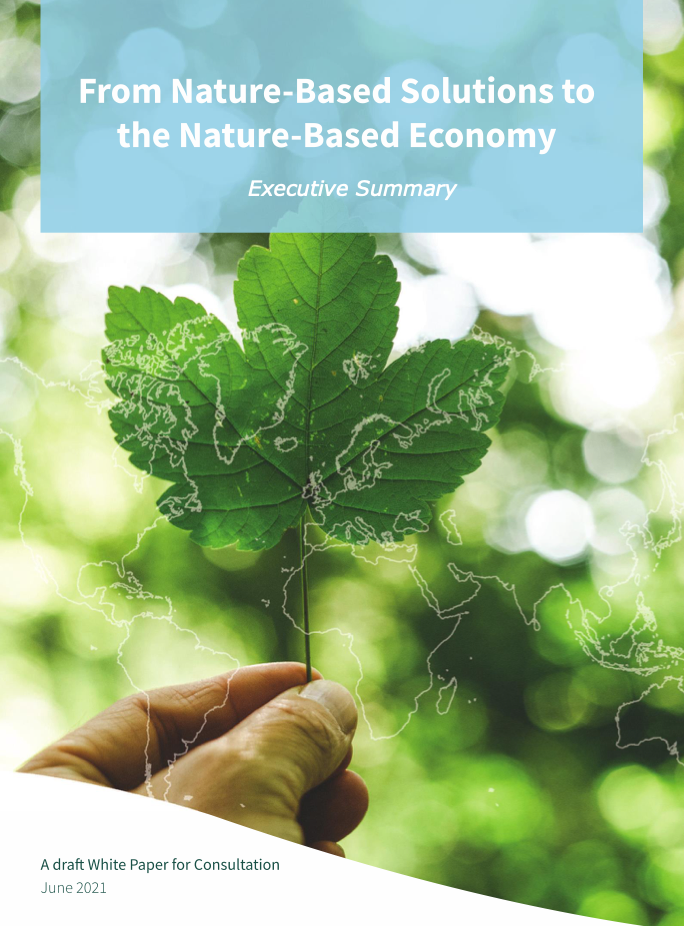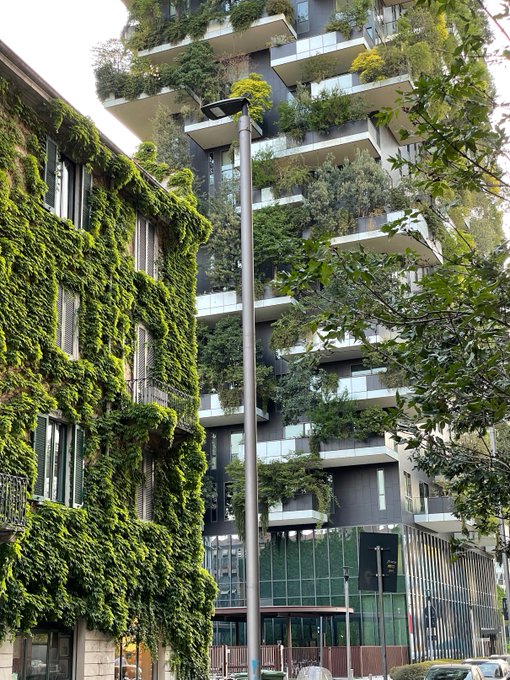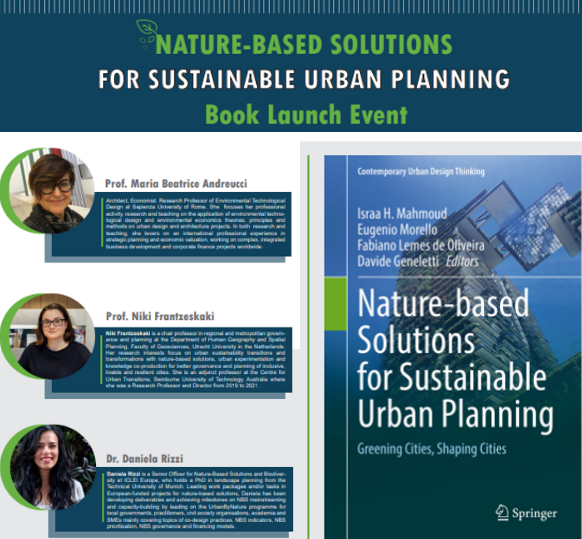
From Nature-Based Solutions to a Nature-Based Economy
13 October 2021. Environmental Economist Prof. Thomas Andersson (IKED, Sweden) representing the URBiNAT project took part in a high-level panel to discuss pathways from Nature-Based Solutions to the Nature-Based Economy.
Takeaways from the session
Marc Watum, South Africa
International Development Specialist and Development Economist, Centre for Pan-African Thought, Water and Humanity Foundation
The largest opportunity in my opinion is this idea that most of Africa is far from reaching an advanced or developed economy status, so defining the development pathway to undertake can still be done. Nothing is set in stone, needs to be reversed, or needs to be redone. Instead, we can look at green fields (or brown fields) and design a nature based future that is encompassing of the entire economy of any particular country in the continent.
Africa is the continent which emits the least, yet which is the most vulnerable to emissions and consequently climate change. Just as an example; agriculture still remains Africa’s number one sector (15% of GDP) combined with extractive sectors (oil & gas, mining). At least 10 African countries rank among the top ten sources for at least, a mineral resource. On agriculture, one quarter of the world’s arable land belongs to Africa and over 60% of the world’s unused arable land is here. However, it is highly concentrated (Egypt and Nigeria account for about 1/3 of agriculture and the top 10 countries all together account for 75%), so the opportunity to grow in this space is immense. Where these lower performing countries lag is in value added services and manufactured goods; you’ll find that countries here are net importers of products like fruit juice, chocolate, things that might surprise you.
So in terms of incentive and the informational campaigning side of things, this isn’t really the challenge (although I must agree with the importance of making these themes understandable, not so highly technical when it comes to jargon as mentioned by Taicia). Where the shortcomings largely have to do with leadership (or governance as shared by Thomas, and is probably the largest challenge for us), financialisation, formality vs. informality, the convergence of youth and rapidly growing populations (especially rapidly growing middle class on urban spaces) which altogether create ongoing struggles to opt for a cleaner development pathway.
Domestically, there are many clear nature-based solutions that have already been championed across the board, some more successful than others, but what is consistent about all of them is that the local culture and economy is already very adaptable to this.
The importance of culture: living on the land, subsistence, community & sharing, spirituality, ancestral knowledge, decentralisation are inbuilt in much of African culture. In states where this has been removed from politics and development has been observed, other challenges arise in Its place — corruption, mismanagement of government resources, social inequality…
A great challenge then is to continue to innovate in a way that recognises everything I’ve just said; preservation of culture, overcoming financial problems and policy externalisation that effectively forces governments to spend their development finance in ways that seek convergence on the world order — banks, loans, credit etc.
The emergence of digital financial payments and banking is also making significant impacts on the way business is done in and around cities. I’m literally loading cash into my phone (sim card) and making payments in under 30 seconds without using a single bank or card or even Internet. I can pay bills this way, buy groceries, give a tip, and just exist without running everything through a bank. In London, to make a new payee happy with my barclays app takes a few minutes no matter how hard I try. And yes, it matters who you bank with because fossil fuel financing by banks has somehow increased every year since COP2015.
While retail is usually separate from investments, this gradual decentralisation of banks from day-to-day productivity in key sectors like agriculture and services will force institutions to be wiser about how they invest, too. When they find that our retail behaviour prefers the preservation of nature, the institutions will likely adapt too, and support bankable & eco-friendly innovations that make them an ally rather than an adversary. And for those economies in Africa who are banked, pension funds are a crucial factor. In 2018, not even 1% of assets in the world’s 100 largest pension funds were invested in low carbon solutions. Yet pensions account for almost half of the entire financial system.

Taícia H. N. Marques, Peru
Doctor of Sciences on Landscape and Environment- FAU-USP, Associate Professor and Concytec researcher in the Department of Planning and Construction- UNALM.
Peru is one of the most biodiverse countries in the world, making it at the same time one of the most vulnerable areas when it comes to the impact of climate change. Perus also faces political and socioeconomical challenges that increase the risk of environmental disasters and their long-term consequences. Over the past decade the country has been closely involved on global and regional pacts for climate, assuming it has an important role to play. Environmental policies in the country are novelty once the Ministry of Environment was only created in 2008 focused on nature conservancy. Nature and economy had traditionally taken different paths, as well as social inclusion, but a possible shift of the business-as-usual model is being recently proposed here.
The design of business models to support and scale up NBS in Peru is challenging since it encompasses a range of actors and sectors that are not used to collaborating. To move towards a Nature-Based Economy there is a need to bring these different actors to the same page of comprehension regarding Nature-based Solutions.
The country has defined two ways towards sustainability and resilience. The National Policy of Competitivity and Productivity, approved in 2018 by the Ministry of Economics and Finance, incorporates strategies of circular economy to achieve sustainability. It is being complemented by specific roadmaps designed by the Ministry of Environment (MINAM), to guide each one of the most representative economic sectors of the country (industry, agriculture, fishing, and aquaculture), on closing its looping. In parallel, also very fresh, policies and regulations focused on Climate Change mitigation and adaptation are being launched by MINAM. From that, 154 National Determined Contributions are planned, among them Ecosystem based Adaptation (EbA), Natural Infrastructure (IN) actions and different approaches to mitigate greenhouse gas emissions to target 2050 neutrality. Together the two groups of policies settle the bases for Nature-based Solutions in the country and open precedents for a Nature-based economy to be developed. Even though this terminology is very new here, the NbS is already cited on official documents referencing the planned NDC.




